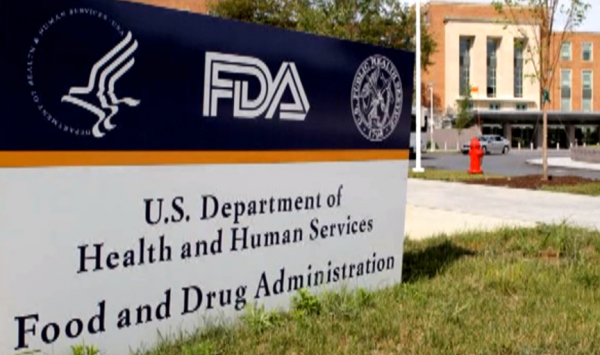 Parler
Parler Gab
Gab
- The FDA recalled RITZ Cracker Sandwich products due to mislabeling: "Peanut butter" fills were incorrectly labeled as "cheese." Affected cartons (sizes 8–40 packs) sold at major U.S. retailers had outer peanut warnings but mislabeled inner packs. No injuries were reported, but the recall was precautionary for allergen safety.
- For 3M+ Americans with peanut allergies, accidental exposure can cause anaphylaxis—potentially fatal within minutes. Peanut allergies have tripled among children (1997–2008), with 6M Americans now affected.
- The root causes of rising allergies include delayed exposure (early peanut introduction such as in Israel reduces allergy rates); genetics, skin barrier damage, and dry-roasting peanuts (increases allergenicity); and the hygiene hypothesis (overly sterile environments may trigger immune overreactions to harmless proteins.)
- Allergy pertains to an immune response where trace amounts cause life-threatening reactions (e.g., peanuts, shellfish). Sensitivity/Intolerance pertains to non-immune reactions with milder symptoms (e.g., bloating, fatigue). Administer epinephrine immediately for allergic reactions and call 911.
- Mislabeling is a recurring issue (e.g., RITZ's Canada recall for undeclared milk). Consumers are advised to double-check outer/inner labels; monitor FDA recalls and learn hidden allergen names (e.g., casein for milk); and educate caregivers on anaphylaxis signs and allergy action plans.
Not just as a snack recall, but a systemic red flag
This isn't the first time RITZ has faced this problem. Just months ago, a similar recall in Canada involved "undeclared milk" allergens. And they're not alone. Mislabeling has become an alarming common cause of food recalls in the U.S., revealing deeper cracks in our food regulation and packaging oversight systems. Peanut allergies aren't a new phenomenon, but they are becoming more widespread and more severe. Between 1997 and 2008, cases of peanut allergy in children more than tripled, a trend that has continued into adulthood. Today, roughly six million Americans are affected. Why are peanut allergies increasing in prevalence? Researchers have some ideas but no single explanation. Here's what they believe is driving the rise in peanut allergies:- Delayed peanut exposure: Ironically, well-meaning efforts to delay peanuts in children's diets may have backfired. In contrast, countries like Israel – where infants are introduced to peanut snacks early – report significantly lower allergy rates. (Related: Trying to desensitize children to peanuts can make allergies WORSE, warn researchers.)
- Genetics: Children with allergic parents are more likely to develop allergies themselves.
- Skin exposure: Daily washing with soap may damage skin barriers, making it easier for peanut proteins to enter the body in unintended ways.
- Food preparation methods: Dry roasting peanuts at high temperatures increases their allergenicity compared to boiling or frying.
- Immune imbalance: According to the "hygiene hypothesis," growing up in overly sterile environments – with limited exposure to everyday microbes like animals, dirt and other people – may prevent the immune system from developing proper tolerance. As a result, it can become overly sensitive and mistakenly identify harmless substances, such as food proteins found in peanuts and tree nuts, as dangerous invaders. This triggers the immune system to release chemicals, like histamine, which leads to the symptoms of an allergic reaction, such as difficulty breathing, hives and swelling.
Allergy vs. intolerance vs. sensitivity: Why knowing the difference could save a life
A common source of confusion – and delayed treatment – is mistaking a food allergy for a sensitivity or intolerance. But they are not the same thing:- Food allergy: A true immune response, even trace amounts of the offending food (like peanuts, tree nuts or shellfish) can trigger symptoms ranging from hives to full-blown anaphylaxis. Immediate intervention is critical.
- Food sensitivity: This still involves the immune system but tends to cause milder, delayed symptoms, like fatigue, joint pain or mood changes that are often harder to pinpoint.
- Food intolerance: This is a digestive issue, not an immune response. Common examples include lactose intolerance, where the body lacks the enzyme needed to digest dairy, and gluten intolerance, where consuming gluten (a protein found in barley, rye and wheat) causes gastrointestinal discomfort but does not trigger an immune reaction like celiac disease does. Symptoms such as bloating, diarrhea or stomach cramping can be unpleasant but are not life-threatening.
- Difficulty breathing or noisy wheezing
- Swelling of the tongue, lips or throat
- Hives, rashes or itching
- Sudden dizziness or fainting
- Vomiting and abdominal cramps
- Pale or "floppy" behavior in young children
- Administer epinephrine (EpiPen) immediately.
- Call 911, even if symptoms subside.
- Lay the person down, unless they are vomiting or having trouble breathing.
- Do not delay. A second wave of symptoms can return even after initial recovery.
- Always read both the outer box and individual wrappers. Do not assume they match.
- Stay updated on food recalls. Sign up of alerts from the FDA's recall site.
- Learn the "hidden" names of food allergens, like albumin, egg lecithin or ovovitellin (eggs); casein, non-fat milk solids or whey (milk); lecithin (soy), etc.
- Talk with a medical professional about allergy testing, especially if symptoms have been vague or inconsistent.
- Educate schools or caregivers about allergy action plans and signs of anaphylaxis.
More related stories:
Food allergies: Symptoms, allergens, testing and nutrition tips. Some people who think they have food allergies may actually have a food intolerance. Got an egg allergy? Iron treatment may help, says research. Sources include: DailyMail.co.uk FoodAllergiesAtlanta.com JACIOnline.org Brighteon.comPew survey: Social media harms teen girls’ mental health and sleep patterns
By Ava Grace // Share
Vitamin C transforms skin renewal by activating genetic youth, study reveals
By Willow Tohi // Share
The Black Patch rebellion: Echoes of the Tobacco Wars in rural America
By Belle Carter // Share
New Hampshire court ruling puts TikTok’s design and free speech under fire
By Belle Carter // Share
FDA ends exemptions for small shipments, tightens oversight on ALL IMPORTS
By Laura Harris // Share
Governments continue to obscure COVID-19 vaccine data amid rising concerns over excess deaths
By patricklewis // Share
Tech giant Microsoft backs EXTINCTION with its support of carbon capture programs
By ramontomeydw // Share
Germany to resume arms exports to Israel despite repeated ceasefire violations
By isabelle // Share










